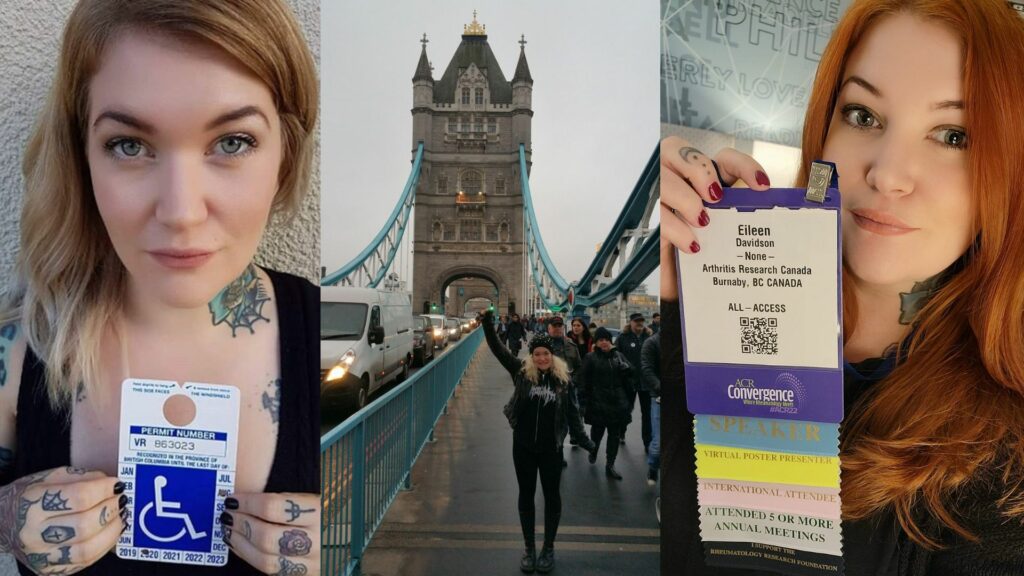I remember the first time I was to travel with rheumatoid arthritis (RA), I emailed and asked my rheumatologist if I could travel. I did not know if I could bring my medications or if there would be stipulations because I was applying for disability. I also didn’t fully understand how sick I was; I was still in the process of trying to understand what having a systemic autoimmune disease truly entailed. This realization did not happen overnight. I had a lot of anxiety about traveling with RA — I still do at times.
Since my diagnosis, I have flown to a number of destinations: London, England; Milan, Italy; Atlanta, Georgia; San Diego, California; Princeton, New Jersey; Winnipeg Manitoba, Canada; Dallas, Texas; Chicago, Illinois; Minneapolis, Minnesota; Philadelphia, Pennsylvania.
While I no longer travel for concerts or festivals like I did prior to my RA diagnosis and becoming a single mom — most of my travel is for rheumatology conferences. I would not be able to go if I was not a patient advocate.
Conferences are also quite difficult when living with RA. They are often long hours, starting early in the morning and running into the evening, with lots of sitting and time spent standing talking to people or walking between talks. I love them, but they are often taxing.
Why Is Travel Difficult with RA?
Between pain, fatigue, and cognitive dysfunction, travel with RA can be difficult. Over the last decade, I have learned a few ways to navigate these challenges.
First and foremost, don’t be afraid to ask for help or advocate for your needs, anywhere, but especially during travel. There is no shame, even if your disability is invisible, in pre-boarding ahead of others or advocating for your needs.
How I Prepare for Travel with RA
Before I travel, I Google where I am going and research the area. Is there a grocery store? Convenience store? Pharmacy? Do they offer Instacart or Uber eats to get some fresh food delivered to your door? Does the hotel have a fridge or a hot tub? If you can’t find the information you need online, call your hotel front desk.
If possible, avoid layovers. For me, the most stress during travel is from layovers, especially if a flight is delayed or canceled. The extra travel time often leads to worsening fatigue. I have an old friend who worked as a Canadian Border Patrol Officer for many years. When he advised me to avoid layovers because they would impact me even more than they do healthy individuals, I felt incredibly validated. His insight gave me the confidence to request a direct flight to my destination, taking into account my disability.
Navigating Travel with RA
Here are my tips for handling biologic medications, packing essentials, finding comfort during transit, prioritizing self-care, and more.
Mind your medications:
- Ask your rheumatologist to write a note what the medications are for.
- If your biologics need to stay in a cooler, ask your rheumatologist or pharmacist what you need to do.
Take caution while packing:
- Only pack important items and what you need the most.
- Pack comfortable clothes and shoes.
- Invest in good luggage that is easy to pull or lift.
- Bring emergency medications and pain relief.
- Keep feet elevated with travel foot rests (there are a ton of option on Amazon).
Find your comfy spot:
- I like window seats on airplanes and forward facing seats on buses or trains.
- Keep feet elevated when you can.
- Get up and move around if you can.
- Only carry what you need; check any heavy luggage.
Have fun but don’t forget to:
- Pace yourself.
- Practice self-care.
- Hydrate, hydrate, hydrate.
- Take medications before the pain and inflammation start.
Take precautions:
- Mask up.
- Carry hand sanitizer and disinfectant wipes.
- Stay up to date on your vaccines.
- If possible, don’t travel directly after an infusion of biologics (wait a week or so).
- Travel during slower days and times.
After I Travel with RA
There is no doubt that after a significant amount of travel my body will let me know I overdid it. I’ve never not struggled after traveling, whether it be jet lag or coming out of a flare after the overwhelming experience of travel. There’s not much way around avoiding it completely, though things I can do to make it easier on myself.
Allow yourself adequate time to rest and recover after traveling, as this process may take a week or longer. It’s important not to expect to fully jump back into your usual routine right away. From my experience, I’ve noticed that if I don’t allow myself enough time to recover, I tend to make more mistakes or forget important things. So, it’s important to keep track of how long it takes for you to fully recover.
Want to Get More Involved with Patient Advocacy?
The 50-State Network is the grassroots advocacy arm of CreakyJoints and the Global Healthy Living Foundation, comprised of patients with chronic illness who are trained as health care activists to proactively connect with local, state, and federal health policy stakeholders to share their perspective and influence change. If you want to effect change and make health care more affordable and accessible to patients with chronic illness, learn more here.






